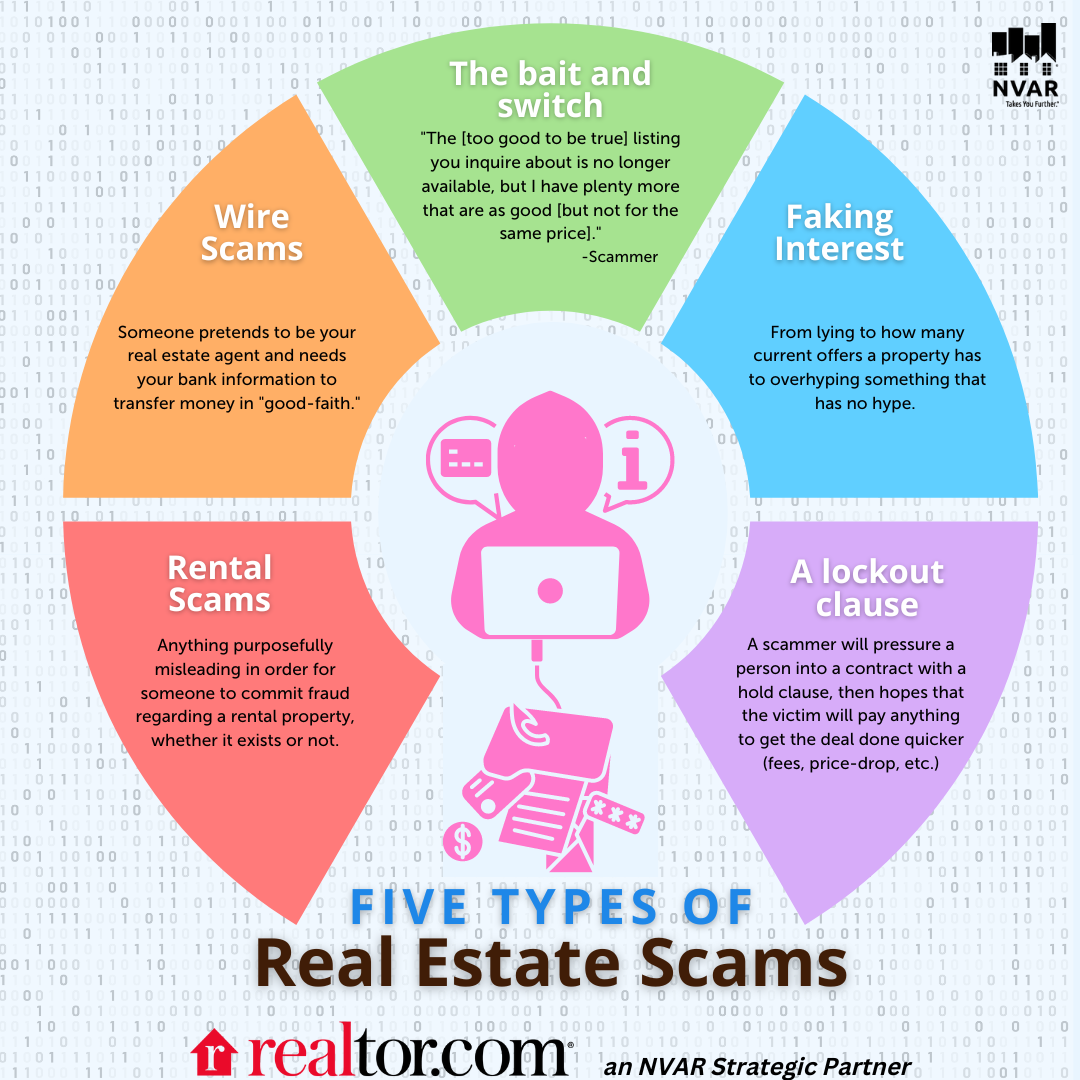Real estate typically involves large financial transactions, making the industry an attractive target for cybercriminals to steal large sums of money. Learn about recent cyber scams and best practices for helping you and your clients avoid becoming victims of wire fraud.

NAR Resources
As of late, there has also been a reported increase in fraudulent emails and text messages from scammers regarding financial activity. These emails are made to look “official” and may include fake invoices, payment requests, or just ask that you simply provide financial information. Under no circumstances should you provide any financial information or personally identifiable information (bank accounts, social security numbers, credit cards, etc.) to an unverified party.
Here are some examples of Fraudulent emails that are being circulated...
- say they’ve noticed some suspicious activity or log-in attempts — they haven’t
- may pose as someone on staff or as a organizational leader and say they need you to send money to their bank account, purchase gift cards, etc. – they don’t
- claim there’s a problem with your account or your payment information — there isn’t
- say you need to confirm some personal or financial information — you don’t
- include an invoice you don’t recognize — it’s fake
- want you to click on a link to make a payment — the link has malware
- say you’re eligible to register for a government refund — it’s a scam
- offer a coupon for free stuff — it’s not real
Here are some precautions to take…
- Check the sender’s email address. If you cannot verify that it is from a known source, it’s probably fake. Make sure to check for spelling errors. Some may only be off by one letter or number.
- Confirm the sender’s identity (In person or by phone) before replying to email requests. If you can’t verify it, contact someone who might know.
- Confirm the sender’s identity (In person or by phone) before clicking on links, even if they appear like they are from a legitimate source.
- Do not call any phone numbers in the suspicious email. They are trained to give you false information.
Together, we can be vigilant to prevent fraud and to help protect our common interests.